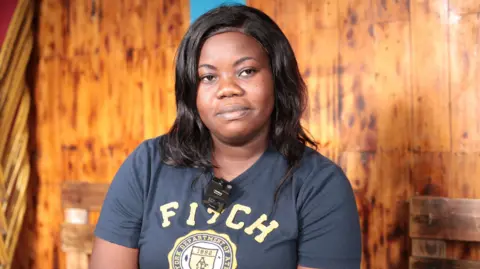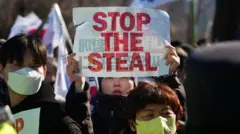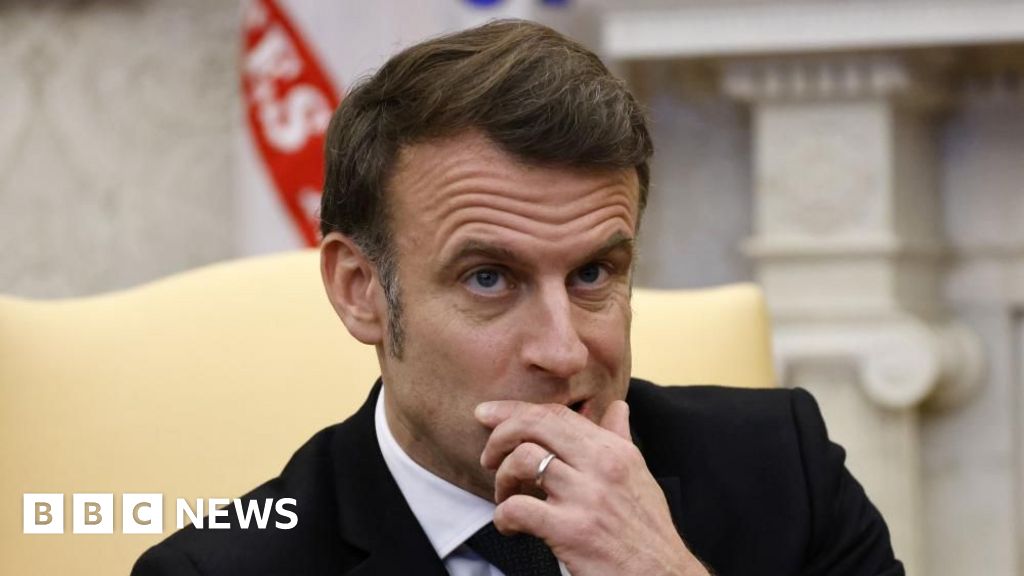BBC News, Libreville
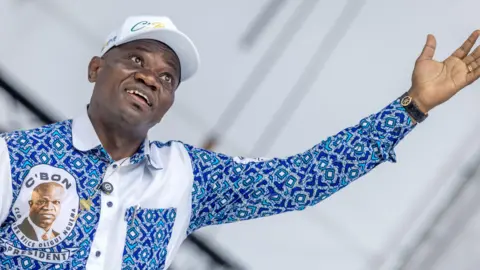 Getty Images
Getty ImagesEvery day, 40-year-old Landry Obame-Mezui drives a taxi in Gabon’s capital Libreville.
But it’s not just any taxi. It’s a sparkling, brand-new white car with the inscription “Taxi Gab+”.
For Mr Obame-Mezui, it is a shining symbol of a promise to Gabon’s youth from coup mastermind-turned-transitional leader Gen Brice Oligui Nguema, who has ruled since August 2023.
With 40% of young people out of work, Oligui Nguema has offered more than 800 new vehicles to young people through a hire purchase scheme.
Mr Obame-Mezui used to drive a taxi owned by someone else. He says, thanks to the interim leader, he now has a better chance of becoming an entrepreneur.
“Before August 30 [2023], things weren’t going as I wished, but today I have something stable on which I can set objectives and go far,” he says, leaning on his new car.
It is no secret who the taxi driver will vote for in Saturday’s presidential election – “I will vote for the builder Oligui Nguema” says the slogan on his car roof.
“The president came in with a new way of doing things – action before speeches,” he says, predicting a “crushing victory” at the polls.
Little more than 19 months after the bloodless coup that brought an end to more than five decades of rule by the Bongo family, the people of Gabon are about to head to the polls to choose a new head of state.
Across the capital, there is no secret about who controls the country.
In varied shapes, sizes and designs, billboards and campaign posters of race favourite Oligui Nguema cover the city.
They dominate the airport, markets and neighbourhoods, leaving very little room for the opposition.
“It’s just for the ambiance,” says Shonnys Akoulatele a potential voter who believes there is more to governance than displaying campaign posters.
With little enthusiasm for the campaign, the 30-year-old says she will only vote out of a sense of duty because none of the eight candidates appear to be able to truly transform the country.
“We’re merely seeing a monotony of the previous regime,” says Ms Akoulatele, adding that presidential candidates are former allies of ex-President Ali Bongo.
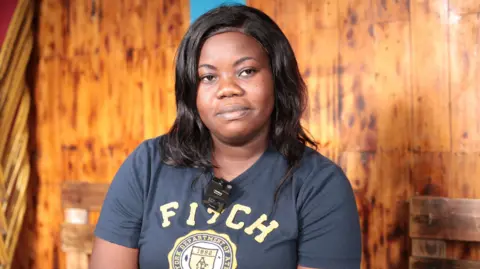
Alain Claude Bilie-by-Nze, the main challenger in the polls, served as prime minister both under late president Omar Bongo and his son Ali Bongo.
Other aspirants such as Stephane Germain Iloko and Alain Simplice Boungouères were also influential members of the former ruling PDG party.
But all candidates seem keen to distance themselves from the old regime.
Front-runner Oligui Nguema served both Bongo father and son, but now emphasises his role in leading the coup that ousted the Ali Bongo.
He is making the fight against corruption, money laundering and embezzlement a central part of the country’s transition to democracy – including arresting the ex-president’s wife and eldest son and accusing them of illegally enriching themselves, which they deny.
On the campaign trail, he boasts of the roads, hospitals and schools being built under his tenure, promising further projects if elected as president.
Not everyone is convinced.
“The transition was something I loved from the start,” says Libreville resident Jacques Okoumba.
“I appreciated what they were doing, but after several months I realised not everything promised during the transition actually materialised.”
After voting for a new constitution in a referendum in November 2024, many believed Saturday’s election would signal the official end of the Bongo dynasty.
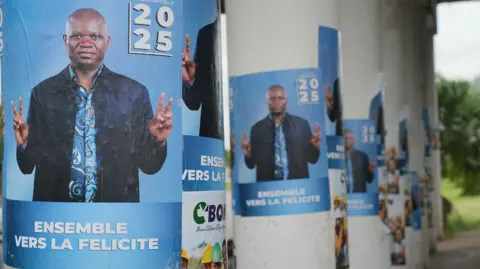
Oligui Nguema’s supporters thought it would complete the work he started with his so-called “liberation coup” a year earlier, ending five decades of corruption scandals, rights abuses and alleged repression.
But political analysts like Bergès Mietté say they doubt how authentic that change is, arguing that political transition is truly valid “when there is a renewal of the political class and method of governance”.
“Looking at the current situation, there’s almost no renewal of the elite, because those in power now were part of the previous regime, be it that of Bongo the father or Bongo the son,” he says.
For most Gabonese, this election is a chance to right some of the wrongs they suffered under the previous regime.
For the first time since 1967, the country will go to the polls without a Bongo or the PDG party on the ticket.
Critics say the new constitution and electoral code were designed to favour Oligui Nguema, because they did not bar the former military officer from running and they introduced age limits which meant older opposition leaders could not challenge him.
But others have dismissed this claim, attributing any potential victory to the fact that Oligui Nguema has no strong competition.
Additional reporting by Gift Ufuoma in Libreville
More BBC stories on Gabon:
 Getty Images/BBC
Getty Images/BBC